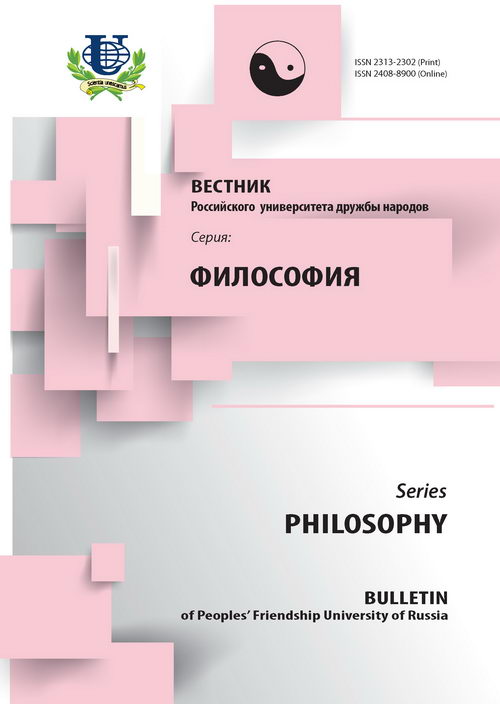Being as intentional object of thinking and “Unity of being” in Parmenids
- Authors: Berestov IV1
-
Affiliations:
- Institute of Philosophy and Law, Siberian Branch of the Russian Academy of Science
- Issue: No 4 (2015)
- Pages: 23-36
- Section: Articles
- URL: https://journals.rudn.ru/philosophy/article/view/11594
- ID: 11594
Cite item
Full Text
Abstract
We propose the interpretation of Parmenides’ poem in which “indivisibility” of things is justified. It is shown that there are good reasons for the interpretation of what-is in Parmenides as an internal object of thinking, which is defined only all at once, completely, by all the characteristics that are attributed to that object in subject’s act of thinking. So, we develop J. Barrington’s treatment of what-is in Parmenides. We also show that Parmenides could mean in Doxa that any apprehended objects are different if and only if they can be apprehended separately. We propose a formalization of these Parmenides’ assumptions on objects of thinking. We construct this formalization by the instrumentality of B. Linsky & E. Zalta’s Theory of abstract objects . We demonstrate how this formalism imply Parmenides’ thesis on “indivisibility” of what-is, which we interpret as assertion of our inability to distinguish between propositions, which are defining an internal object of thought, or to distinguish between properties attributed to the internal object of thinking. We also point out the respects in which our interpretation is similar to “predicational monism”, attributed to Parmenides by P. Curd, and in which respects it is different from it.
About the authors
I V Berestov
Institute of Philosophy and Law, Siberian Branch of the Russian Academy of Science
Email: berestoviv@yandex.ru
Department of History of philosophy; Subdepartment of Gnoseology and History of Philosophy of Department of Philosophy Novosibirsk State University Pirogova str., 2, Novosibirsk, Russia, 630090
References
Supplementary files















